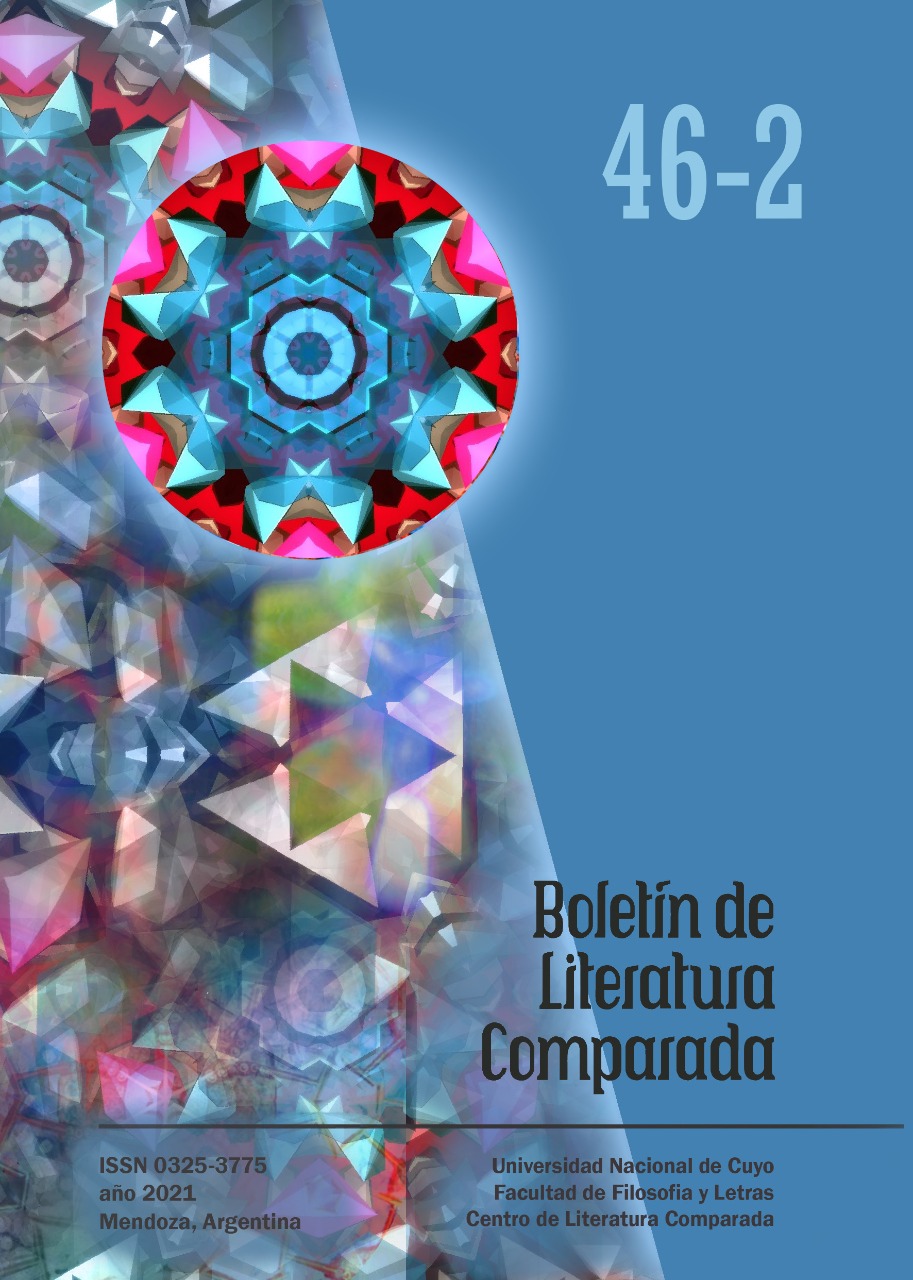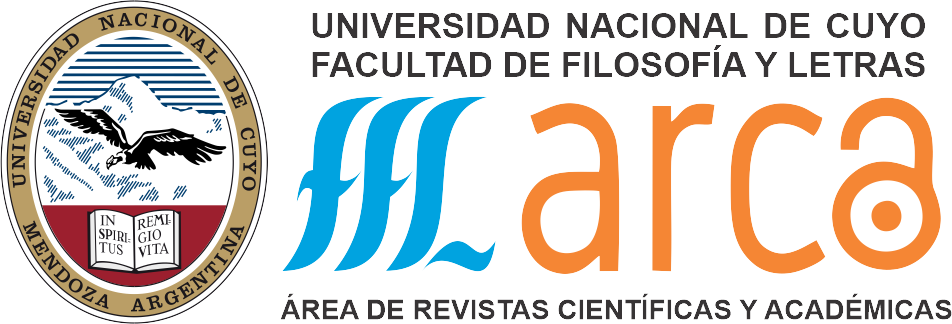Visibility in Mapuche Literary Self-Translation
DOI:
https://doi.org/10.48162/rev.54.009Keywords:
Self-translation, Visibility, Mapuche literature, MapudungunAbstract
Self-translation, which consists in the practice of rendering one’s own writings into another language, has become a particularly fruitful ground for reinforcing the concept of the translator’s invisibility or, on the contrary, for questioning it. Two strong positions on the matter have been taken in self-translation studies. On the one hand, the very authority of the self-translator allows for privileged access to the original drafts and supposedly even to pre-verbal memories. These particular set of resources would imply that self-translators have a better sense of the purpose of their writings. The translation would then be extremely close to the original and would thus result in an almost absolute invisibility of the translator (Tanqueiro 1999). On the other hand, the agency granted to self-translators seems to provide them with more freedom to (re)create their work in a second language (Grutman and Van Bolderen 2014), which would mean that they are the most visible of translators given the textual marks of cultural reflection on the expressive possibilities of their own translated versions (Hernández 2010). In adherence to this last position, this work delves further into the issue of the visibility of the self-translator when one of the languages involved in their work is a minorised one. Such is the case of contemporary Mapuche literature. This work takes an author-oriented approach to the study of self-translation in the bilingual Mapudungun-Spanish work of a group of three contemporary poets—Elicura Chihuailaf, Rayen Kvyeh and Adriana Paredes Pinda—who have had diverse sociolinguistic backgrounds and language acquisition experiences, in order to uncover the varied strategies they unfold in their texts to make their agency as self-translators a tool for cultural and linguistic visibility.
References
ÁLVAREZ-SANTULLANO BUSCH, P. / SPAROSVICH, A. Forno / RISCO DEL VALLE, E. “Propuestas de grafemarios para la lengua mapuche: desde los fonemas a las representaciones político-identitarias”. En: ALPHA: Revista de Artes, Letras y Filosofía 40 (2018), pp. 113-130.
ANCALAO, Liliana. 2005. “Oralitura: una opción por la memoria”. El Camarote 5: pp. 32- 33.
ASHCROFT, B. / GRIFFITHS, G. / TIFFIN, H., Post-Colonial Studies. The Key Concepts. 2 ed. New York: Routledge, 2007.
CASASUS, M., “Rayen Kvyeh, Poeta Mapuche: “El estado chileno está ciego””. En: Enlace Mapuche Internacional. 17/01/2008. Disponible en: http://www.mapuche-nation.org/espanol/html/noticias/ntcs-349.htm.
CAÑUMIL, T., Estudio del idioma mapuche. Mapucezugun ñi gvnezuam. Florencio Varela: Xalkan, 2011.
CHIHUAILAF, Elicura. 1988. En el país de la memoria. Quechurewe, Temuco: Edición del autor.
CHIHUAILAF, Elicura. 1991. El invierno, su imagen y otros poemas azules. Temuco: Literatura Alternativa.
CHIHUAILAF, Elicura.1995. De sueños azules y contrasueños. Santiago de Chile: Universitaria.
CHIHUAILAF, Elicura. 1999. Recado confidencial a los chilenos. Santiago: LOM.
CHIHUAILAF, Elicura. 2008. Sueños de luna azul. Santiago de Chile: Cuatro Vientos.
DASILVA, Xosé Manuel, “La opacidad de la autotraducción entre lenguas asimétricas”. En: Trans 19, 2 (2015): pp. 171-182.
DASILVA, Xosé Manuel, “En torno al concepto de semi-autotraducción”. En: Quaderns: Revista de traducció 23 (2016): pp. 15-35
DE ERCILLA, A., La Araucana/Ta awkan mapu mew. Introducción, comentario y adaptación poética: Elicura Chihuailaf. Traducción: Manuel S. Manquepi. Santiago: Ministerio de Educación, Programa de Educación Intercultural Bilingüe, 2006 [1559, 1578, 1589].
DERRIDA, Jacques, El monolingüismo del otro (o la prótesis de origen). Buenos Aires: Manantial, 1997.
DE SOUSA SANTOS, Boaventura, Descolonizar el saber, reinventar el poder. Uruguay: Ediciones Trilce, 2010.
FALABELLA, S. / HUINAO, G. / MIRANDA RUPAILAF, R (eds), Hilando en la memoria. Epu rupa. Santiago de Chile: Cuarto Propio, 2009.
FALL, Yoro, Historiografía, sociedades y conciencia histórica en África. Mexico: El Colegio de México, 1992.
FOLARON, Debbie, “Introduction: Translation and minority, lesser-used and lesser- translated languages and cultures”. En: Journal of Specialised Translation 24 (2015): pp. 16-27.
G5NOTICIAS, “Elicura Chihuailaf Nahuelpán recibe Premio Nacional de Literatura 2020”. 01/11/2020. Disponible en: https://g5noticias.cl/2020/09/01/elicura-chihu ailaf-nahuelpan-recibe-premio-nacional-de-literatura-2020/
GRUTMAN, Rainier/ VAN BOLDEREN, Trish, “Self-Translation”. En: BERMANN, S. / PORTER, C., A Companion. West Sussex: Wiley-Blackwell, 2014. pp. 323-332.
HERNÁNDEZ, María Belén, “El fenómeno cotidiano de la autotraducción en Italia y España”. En: Estudios Románicos 19 (2014): pp. 113-126.
HERNÁNDEZ VARGAS, Saúl. “Lenguas sin ejército: Yásnaya Aguilar e Irma Pineda en Léala 2015”. May, 2015. Disponible en: https://www.tierraadentro.cultura.gob. mx/lenguas-sin-ejercito-yasnaya-aguilar-e-irma-pineda-en-leala-2015/
JARA, V., Canto libre/ Lliz vlkantun. Santiago de Chile: LOM, 2007.
KVYEH, Rayeh, Wvne coyvn ñi kvyeh/ Luna de los primeros brotes. Temuco: Mapu Ñuke, 1996.
La Cooperativa, “Versión en mapudungun de "La Araucana" fue presentada en la Biblioteca Nacional”. 14/07/2006. Disponible en: https://www.cooperativa.cl/ noticias/cultura/literatura/version-en-mapudungun-de-la-araucana-fue-presentada-en-la-biblioteca/2006-07-14/174806.html
LONCÓN, Elisa, “Hoy conmemoramos un año más de la muerte de Anselmo Raguileo”. Twitter. 28/02/2021. Disponible en: https://twitter.com/elisaloncon/status/1365986 113823920129
MANTEROLA, Elizabete, “Collaborative Self-Translation in a Minority Language: Power Implications in the Process, the Actors and the Literary Systems Involved”. En: CASTRO, O. et al. (eds), Self-Translation and Power. Basingtoke: Palgrave Macmillan, 2017, pp. 191- 215.
MUNIZAGA YÁVAR, M, Las voces del trance: estudio crítico de la obra poética de Adriana Paredes Pinda. Valdivia: Serindígena, 2011.
PARK, Sowon, “Introduction: Transnational Scriptworlds”. En: Journal of World Literature 1 (2016): pp. 129-141.
PINDA, Adriana. “Witral ñi rayen / La flor del telar”. En: Ciudad Circular. Revista de Creación Horizontal 5 (2004). Disponible en: http://www.ciudadcircular.cl/contenido/ autores/adriana_pinda.htm
PINDA, Adriana, Epu Rume Zugu Rakiduam: Desgarro y Florecimiento. La Poesía Mapuche entre Lenguas. Tesis Doctoral. Valdivia: Universidad Austral de Chile, 2013.
PINDA, Adriana. 2014. Parias zugun. Santiago de Chile: LOM.
QUINTUPIL, Erwin., “Recordando a Anselmo Raguileo. Entrevista a Rayen Kvyeh”. En: Información Mapuche Difusión. 29/11/2010. Disponible en: https://aureliennewenma puche.blogspot.com/2011/12/recordando-anselmo-raguileo.html
RECUENCO PEÑALVER, M., Traducción y autotraducción: El caso de Vasilis Alexakis. Tesis doctoral. Facultad de Letras, Universidad de Málaga, 2013. Disponible en: https://core.ac.uk/download/pdf/62904616.pdf
SÁNCHEZ, J. G., “Los esbirros no han logrado/apagar la luz de la luna”: Rayen Kvyeh. En: Maguaré 29, 1 (2015): pp. 21–53.
SANTOYO, Julio César. “Autotraducciones: ensayo de tipología”. En: ALBA MARTINO, P. et al. (eds). Al humanista, traductor y maestro Miguel Ángel Vega Cernuda. Madrid: Editorial Dykinson, 2012. pp. 205-222.
SEDEVICH, Carina, “Poesía en dos lenguas I. Liliana Ancalao”. En: Ardea. 27 (febrero 2020) Disponible en: https://ardea.unvm.edu.ar/entrevistas/liliana-ancalao/
STOCCO, Melisa, “Negociación lingüística e identitaria en las autotraducciones de tres poetas mapuche”. En: Ticontre 7 (2017a.): pp. 41-65.
STOCCO, Melisa, “La autotraducción en la poesía mapuche contemporánea. Entrevista a la autora Liliana Ancalao”. En: Boletín de Literatura Comparada 42 (2017b): pp. 109-115.
STOCCO, Melisa, La Autotraducción en la Poesía Mapuche. New York: Peter Lang, 2021.
TANQUEIRO, Helena, “Un traductor privilegiado: el autotraductor”, En: Quaderns. Revista de traducció 3 (1999): pp. 19-27.
TEILLIER C, Fernando, “Vitalidad lingüística del mapudungun en Chile y epistemología del hablante”. En: RLA. Revista de lingüística teórica y aplicada 51, 1 (2013): pp. 53-70.
VAN BOLDEREN, Trish, Twice Heard, Hardly Seen: The Self-Translator’s (In)visibility. Master Thesis. University of Ottawa, 2010. Disponible en: https://ruor.uottawa.ca/ handle/10393/28767
WITTIG, Fernando, “Desplazamiento y vigencia del mapudungun en Chile: Un análisis desde el discurso reflexivo de los hablantes urbanos”. En: RLA 47 (2009): pp. 135-155.
Downloads
Published
How to Cite
Issue
Section
License
Copyright (c) 2021 Boletín de Literatura Comparada

This work is licensed under a Creative Commons Attribution-NonCommercial-ShareAlike 4.0 International License.






